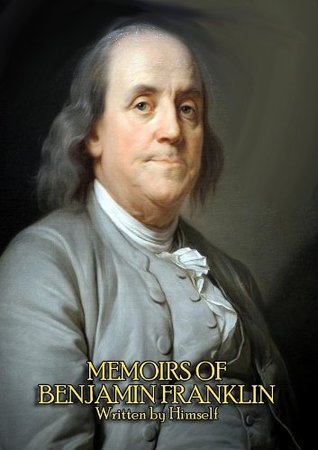More on this book
Community
Kindle Notes & Highlights
Dr. Franklin left nothing untried to prevail upon the ministry to consent to a change of measures.
private conversations, and in letters to persons in government, he continually expatiated upon the impolicy and injustice of their conduct towards America; and stated that, notwithstanding the attachment of the colonists to the mother country, a repetition of ill-treatment must ultimately alienate their affections. They listened not to his advice. They blindly persevered in their own schemes, and left to the colonists no alternative but opposition or unconditional submission. The latter accorded not with the principles of freedom which they had been taught to revere. To the former they were
...more
the fall of the same year he visited Canada, to endeavour to unite them in the common cause of liberty; but they could not be prevailed upon to oppose the measures of the British government. M. le...
This highlight has been truncated due to consecutive passage length restrictions.
The momentous question of independence was shortly after brought into view, at a time when the
ignorant of discipline, and entirely unskilled in the art of war, without money, without a fleet, without allies, and with nothing but the love of liberty to support them, the colonists determined to separate from a country from which they had experienced a repetition of injury and insult. In this question Dr. Franklin was decidedly in favour of the measure proposed, and had great influence in bringing others over to his sentiments.
The public mind had been already prepared for this event by Mr. Paine's celebrated pamphlet, Common Sense. There is good reason to believe that Dr. Franklin had no inconsiderable share at least in furnishing materials for this work.
France became involved in the war with Great Britain.
His personal influence was hence very considerable.
loans negotiated in Holland and France, which greatly contributed to bringing the war to a happy conclusion.
The repeated ill success of their arms, and more particularly the capture of Cornwallis and his army, at length convinced the British nation of the impossibility of reducing the Americans to subjection. The trading interest particularly became clamorous for peace. The ministry were unable longer to oppose their wishes. Provisional articles of peace were agreed to, and signed at Paris, on the 30th of November, 1782, by Dr. Franklin, Mr. Adams, Mr. Jay, and Mr. Laurens, on the part of the United States, and by Mr. Oswald on the part of Great Britain. These formed the basis of the definitive
...more
The important ends of Dr. Franklin's mission being completed by the establishment of American independence, and the infirmities of age and disease coming upon him, he became desirous of returning to his native country. Upon application to Congress to be recalled, Mr. Jefferson was appointed to succeed him in 1785. Some time in September of the same year Dr. Franklin arrived in Philadelphia. He was shortly after chosen a member of the supreme executive council for the city, and soon after was elected president of the same.
When a convention was called to meet in Philadelphia, in 1787, for the purpose of giving more energy to the government of the union, by revising and amending the articles of confederation, Dr. Franklin was appointed a delegate from the State of Pennsylvania. He signed the constitution which they proposed for the union, and gave it the most unequivocal marks of his approbation. A society for political inquiries, of which Dr. Franklin was president, was established about this period. The meetings were held at his house. Two or three essays read in this society were published. It did not long
...more
In the year 1787, two societies were established in Philadelphia, founded on the principles of the most liberal and refined humanity: The Philadelphia Society for alleviating the miseries of public prisons: and the Pennsylvania Society for promoting the abolition of slavery, the relief of free negroes unla...
This highlight has been truncated due to consecutive passage length restrictions.
each of these Dr. Franklin was president. The labours of these bodies have been crowned with great success; and they continue to prosecute, with unwearied diligence, the la...
This highlight has been truncated due to consecutive passage length restrictions.
the most agreeable and instructive manner. His faculties were entirely unimpaired, even to the hour of his
society, was signed to the memorial presented to the House of Representatives of the United States, on the 12th of February, 1789, praying them to exert the full extent of power vested in them by the constitution in discouraging the traffic in the human species. This was his last public
Notwithstanding his distressed situation, neither his mental faculties nor his natural cheerfulness ever forsook him. His memory was tenacious to the
present afflictions were kindly intended to wean him from a world in which he was no longer fit to act the
eighty-four years
I wish to be buried by the side of my wife, if it may be, and that a marble stone, to be made by Chambers, six feet long, four feet wide, plain, with only a small moulding round the upper edge, and this inscription, Benjamin and } Franklin, Deborah


